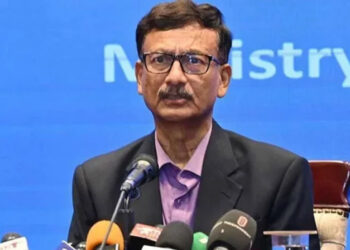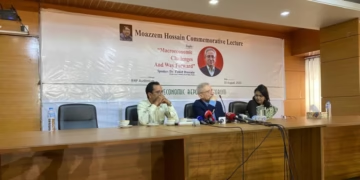Bangladesh could earn $1 billion annually from the global carbon market, but policy gaps and limited private sector involvement are holding the country back, experts say.
Bangladesh’s Untapped Billion-Dollar Opportunity
Bangladesh is sitting on a billion-dollar opportunity in the carbon market, but a lack of clear policy and insufficient private sector engagement continue to limit progress, analysts said at a major discussion in Dhaka.
The event, “Catalysing Carbon Financing in Bangladesh: Private Sector Pathways and Policy Readiness,” was hosted by LightCastle Partners and brought together climate finance experts, central bankers, and business leaders. Their collective message was clear: the carbon market is no longer a future prospect — it’s a present-day opportunity, and Bangladesh must act fast.
Only $17 Million Earned Since 2006
Despite being one of the most climate-vulnerable countries in the world and a leader in community-level adaptation strategies, Bangladesh has earned just $17 million since 2006 through carbon-offset projects such as solar home systems and clean cooking stoves.
In comparison to its vast potential, this is a mere drop in the ocean. According to analysts, Bangladesh could tap into $1 billion a year from the global carbon market, provided it sets a robust regulatory framework and actively mobilizes both public and private investment.
“Bangladesh is capable of playing a serious role in the global carbon market, but we need strong policy direction to back that ambition,” said Lincoln Teo, Managing Director of ZERO13, a global digital carbon infrastructure company.
Carbon Market Tied to Climate and Economic Goals
Teo’s presentation highlighted how Bangladesh’s climate ambitions are perfectly aligned with carbon market opportunities.
The country aims to:
-
Generate 16% of energy from renewable sources by 2030
-
Reduce annual carbon emissions by 89.47 million tonnes of CO₂e
Achieving these targets would not only boost the country’s carbon credit eligibility but also stimulate key sectors like sustainable agriculture, water management, and green energy.
Teo emphasized that the carbon market isn’t just about selling credits — it’s about embedding climate action into the economy and creating financial incentives for businesses to decarbonize.
Why Bangladesh Isn’t Moving Fast Enough
While Bangladesh has set green finance targets, experts warn that policy implementation is still too slow and fragmented.
“We’ve launched refinancing schemes and sustainability guidelines, but we now need real public-private partnerships and strong banking sector support,” said Ahmed Zubaer Mahmud, Additional Director of the Sustainable Finance Department at Bangladesh Bank.
Experts at the event emphasized that without:
-
A clear national carbon market policy
-
Verified measurement and reporting systems (MRV)
-
International certification and transparency
Bangladesh cannot scale up carbon financing or attract serious global investors.
Read More: Dhaka Bank Interest Income Surges by 31% Despite Net Profit Decline in 2024
The Private Sector’s Role in the Carbon Market
Bijon Islam, CEO of Light Castle Partners, urged private companies to think beyond traditional CSR and adopt carbon financing models that are sustainable and profitable.
“Carbon financing isn’t charity. It’s smart business. The carbon market opens new investment channels and supports a low-carbon, inclusive economy.”
Islam pointed out that sectors like textiles, transport, agriculture, and energy can generate high-quality carbon credits if proper mechanisms are put in place. These credits can be sold internationally or even offset internal emissions as part of ESG reporting.
Lessons from Other Nations
Countries like India, Kenya, and Vietnam have already capitalized on the global carbon market through:
-
National carbon registries
-
Certified renewable energy projects
-
Public-private investment models
Bangladesh, with its renewable potential and climate-vulnerable status, could become a global carbon credit exporter but only if it moves swiftly to reform policy and implement internationally recognized standards.
Strategic Recommendations for Bangladesh
-
Develop a National Carbon Market Roadmap
A formal strategy with roles, regulations, and measurable targets is critical. -
Build Capacity in MRV and Verification
Accurate monitoring systems and third-party verification are needed to ensure credibility. -
Engage the Private Sector Actively
Offer tax incentives, carbon credit trading platforms, and simplified registration processes. -
Leverage International Climate Finance
Tap into climate funds and technology transfer mechanisms available under Article 6 of the Paris Agreement. -
Promote Climate-Tech Startups
Support startups working in carbon capture, green logistics, and sustainable energy.
The global carbon market is growing fast. According to analysts, the voluntary carbon market could be worth over $50 billion by 2030, and countries that move early will benefit the most.
With global companies under pressure to meet net-zero targets, the demand for high-integrity carbon credits specially from climate-vulnerable countries like Bangladesh is expected to surge. If Bangladesh delays, it may lose out to more prepared nations, despite having one of the strongest justifications for participating in carbon trading due to its climate challenges.
Bangladesh has a chance to transform its climate challenges into economic opportunities by stepping boldly into the carbon market. The road ahead requires coordination, policy clarity, and a mindset shift from climate aid to climate investment. With the right policies and partnerships, the carbon market could become a pillar of Bangladesh’s green economy, bringing in billions, creating jobs, and protecting the planet.
Share via:


















